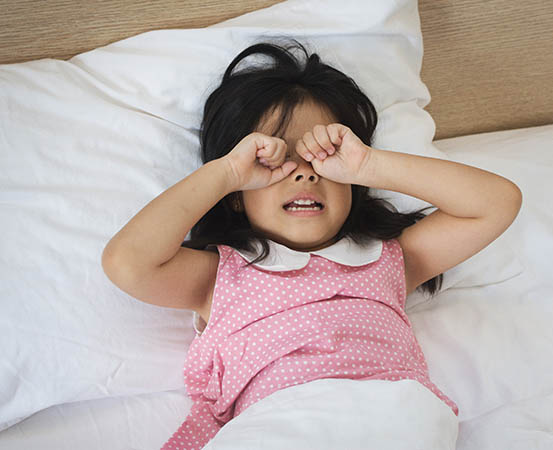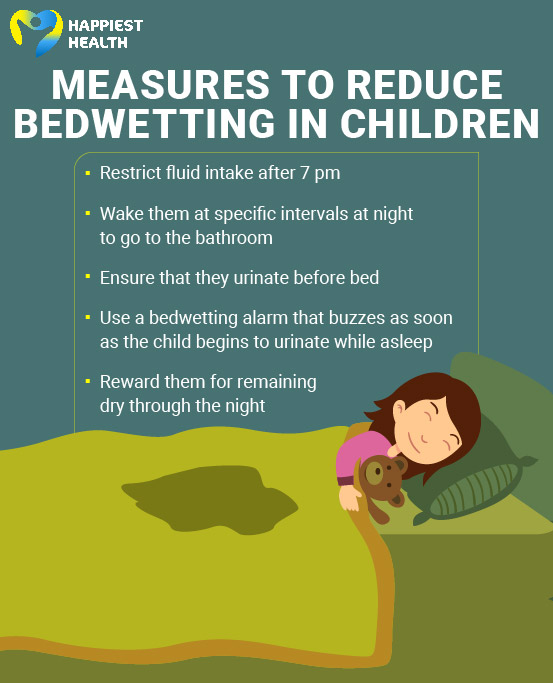
A girl from Mumbai, Roohi (name changed on request), began toilet training when she was three and had complete bladder control when she was five years old. However, at the age of nine, she began bedwetting again at night. Upon investigation, it appeared that the child’s bedwetting had psychological reasons.
Dr Vrushali Bichkar, consultant pediatrician and neonatologist, Motherhood Hospital, Lullanagar, Pune, who was Roohi’s treating doctor, reveals, “Her parents were pressurizing her to get good academic grades.” Further, she was involved in several extracurricular activities, many of which she was uninterested in. “These stressors contributed to her bedwetting,” points out Dr Bichkar.
Bedwetting in children: When should you worry?
Night dryness is a developmental milestone where the baby can sleep through the night without passing urine while in bed. Bedwetting or enuresis is the involuntary release of urine. It is usually seen at night and is also known as nocturnal enuresis.
“90% of babies attain nighttime dryness by the age of four to six years. While some babies may take more time, it can be a cause of concern if the child wets the bed even after they are seven years old,” says Dr Bichkar. She discusses the different types of nocturnal enuresis:
Primary enuresis
The child has never attained bladder control, even when they are six years old. It isn’t pathological and usually resolves on its own.
Secondary enuresis
The child’s bedwetting reappears after attaining bladder control for at least six months. It is associated with an underlying pathological condition.
Psychological causes of bedwetting
Nocturnal enuresis can have multiple causes, ranging from poor control over the urinary bladder muscles to constipation and urinary tract infections.
A 2015 study published in European Child & Adolescent Psychiatry found that difficult temperament and psychological problems in early childhood were associated with increased odds of bedwetting between the ages of four to nine years. Another study published in Developmental Psychology states, “Difficult temperament describes children who are characterized by negative mood, withdrawal, low adaptability [the amount of energy children expend to convey emotions], high intensity, and low regularity [predictability in a child’s schedules].”
Dr John Vijay Sagar, professor and HOD, Department of Child & Adolescent Psychiatry, National Institute of Mental Health, and Neurosciences (NIMHANS), Bangalore, shares, “Nocturnal enuresis is usually psychological. If enuresis is seen during the daytime, it could be indicative of a medical condition. Daytime enuresis is comparatively rare.” He adds. “The behavior is more common in boys than girls.” Further, he sheds light on the psychological causes of nocturnal enuresis in children:
Stress: Children may experience stress due to health issues in parents or family members or academic pressure.
Life events: Changing schools or residence, parental separation, and the birth of a sibling can lead to unease.
Abuse: Physical, verbal, and sexual abuse or bullying at school can cause nocturnal enuresis.
Witnessing traumatic events: When a child sees accidents or incidents such as the death of a family member, it can leave a mental scar.
Psychological conditions: Bedwetting can co-exist with psychological conditions like anxiety, depression, attention deficit hyperactivity disorder (ADHD) and post-traumatic stress disorder (PTSD).
Diagnosing enuresis
Enuresis is classified as an elimination disorder in the Diagnostic and Statistical Manual of Mental Disorders (DSM-5). The following are the criteria for diagnosing it:
- Repeated urination into bed or clothes, whether involuntary or intentional.
- The behavior occurs at least twice a week for at least three consecutive months. Alternately, there could be significant distress or impairment in social, academic, or other important areas of functioning.
- The child’s chronological age is at least five years, or they are at an equivalent developmental level.
- The behavior is not attributable to the physiological effects of a substance (e.g., a diuretic, an antipsychotic medication) or another medical condition.
Do parental attitudes matter?
Parents should begin toilet training when the child is two or three years old. “Children may wet their beds during toilet training. Parents shouldn’t react aggressively or be punitive towards the child when the child is being toilet trained,” says Dr John.
Parents must refrain from scolding or mocking their child for bedwetting. This is because negative parental reactions can cause stress and anxiety in the child and delay the acquisition of bladder control. “Uninvolved or neglectful parenting styles where the parent fails to cater to the child’s needs could also induce anxiety in the child, affecting bladder control,” adds Dr Bichkar. Instead, she opines that parents should use positive reinforcement like praise when the child keeps dry.
Treating bedwetting in children
Roohi underwent behavioral therapy for her bedwetting. Further, her parents were advised against giving her fluids before she went to bed. They were also counseled to modify their behavior and attitudes towards the child and use gentle parenting techniques.
Dr John opines that the psychological stressors should be addressed with therapy. In severe cases, medications may also be used.

Takeaways
- Most children can control their bladder by the age of four to six years.
- Psychological causes of bedwetting include traumatic life events, anxiety, depression and academic stress.
- Bedwetting can be managed with measures including therapy and reduced fluid intake at night.















